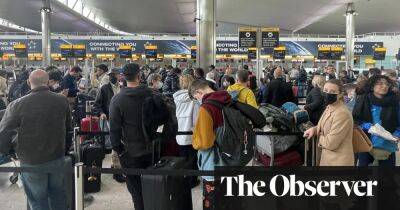Full-time office work is 'dead': 3 labor experts weigh in on the future of remote work
The pandemic-era trend of working from home remains a key feature of the U.S. job market — and is likely to stay entrenched as a permanent perk for a broad swath of the American workforce, according to labor economists.
The pre-pandemic baseline of going into an office five days a week «is dead» for many workers, said Nick Bunker, an economist at job site Indeed.
«Remote work is here to stay,» Bunker said.
More from Personal Finance: Missing tax forms will 'definitely' delay your refund When will Supreme Court rule on Biden's student loan forgiveness plan? Average recipient to get $90 less in food stamps as Covid aid ends
In 2019, about 5% of full-time work was done from home. The share ballooned to more than 60% in April and May 2020, in the early days of the Covid-19 pandemic, said Nicholas Bloom, an economist at Stanford University who has researched remote work for two decades.
That's the equivalent to almost 40 years of pre-pandemic growth virtually overnight, his research shows.
The share of remote work has steadily declined (to about 27% today) but is likely to stabilize around 25% — a fivefold increase relative to 2019, Bloom said.
«That's huge,» he said. «It's almost impossible to find anything in economics that changes at such speed, that goes up by 500%.»
Initially, remote work was seen as a necessary measure to contain the spread of the virus. Technological advances — such as videoconferencing and high-speed internet — made the arrangement possible for many workers.
Both employees and companies subsequently discovered benefits beyond an immediate health impact, economists said.
Employees most enjoy the reduction in commute, less time getting ready for work and a flexible schedule that more easily allows for
Read more on cnbc.com




![What is driving Trader Joe’s [JOE] recent surge in DEX trading volume? - ambcrypto.com](https://finance-news.co/storage/thumbs_400/img/2023/4/2/62551_qsdez.jpg)





![Ripple [XRP] falls to psychological support level: Can bulls step up soon - ambcrypto.com](https://finance-news.co/storage/thumbs_400/img/2023/4/1/62544_g2qq.jpg)

![Bitcoin [BTC] gives way to bullish sentiment: Bye-bye, bear market? - ambcrypto.com - city Santiment](https://finance-news.co/storage/thumbs_400/img/2023/4/1/62541_uds.jpg)






